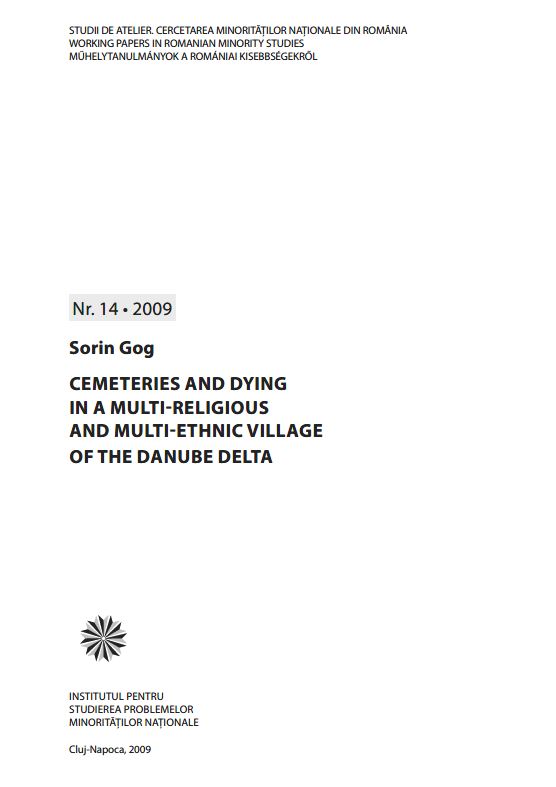Cemeteries and Dying in a Multi-religious and Multi-ethnic Village from the Danube Delta
Cemeteries and Dying in a Multi-religious and Multi-ethnic Village from the Danube Delta
Author(s): Sorin Gog
Subject(s): Cultural history, Customs / Folklore, Regional Geography, Local History / Microhistory, Ethnic Minorities Studies, Identity of Collectives
Published by: ISPMN Institutul pentru Studierea Problemelor Minorităţilor Naţionale
Keywords: Multi-ethnic villages of the Danube Delta; Cemetaries; culture; Romania; Cultural-ethnic identities; Burial practices;
Summary/Abstract: This paper focuses on the way the new post-socialist cosmology is restructuring religion, shaping the religious mentalities of contemporary Romania. I am trying to investigate this by analyzing the ways the different local politics of ethnic and cultural identities remodel the perspectives on after-life and burial practices. My research aims at analyzing the symbolic architecture of the discourse that surrounds and penetrates the dead body. It focuses also on the way the cemetery is transformed into a micro-world that reflects the religious, ethnic and cultural struggles of the new post-socialist world. Along this line of reasoning I chose for research the multi-ethnic and multi-religious village of Sch., situated in the south-eastern part of Romania. Old-Orthodox Lipovenians (divided into two antagonistic religious communities, popovtsi and bezopopovtsi) and their eternal rivals, Orthodox Romanians, have to co-habit the village and share the local resources with the newly emerged community of Lipovenian-Romanian Adventists. What seems even harder to do is to share the after-life and cemetery space, where the borderlines between these four communities become even stronger. The instrumentalization of the symbolic architecture of after-life that penetrates the dead body and the fragmentation of the cemetery space that accompanied this process mirror the important transformations of the Romanian social system and the struggle to enact the different post-socialist politics of ethnic and cultural identities.
Series: STUDII DE ATELIER. CERCETAREA MINORITĂŢILOR NAŢIONALE DIN ROMÂNIA
- Page Count: 24
- Publication Year: 2009
- Language: English
- Content File-PDF

